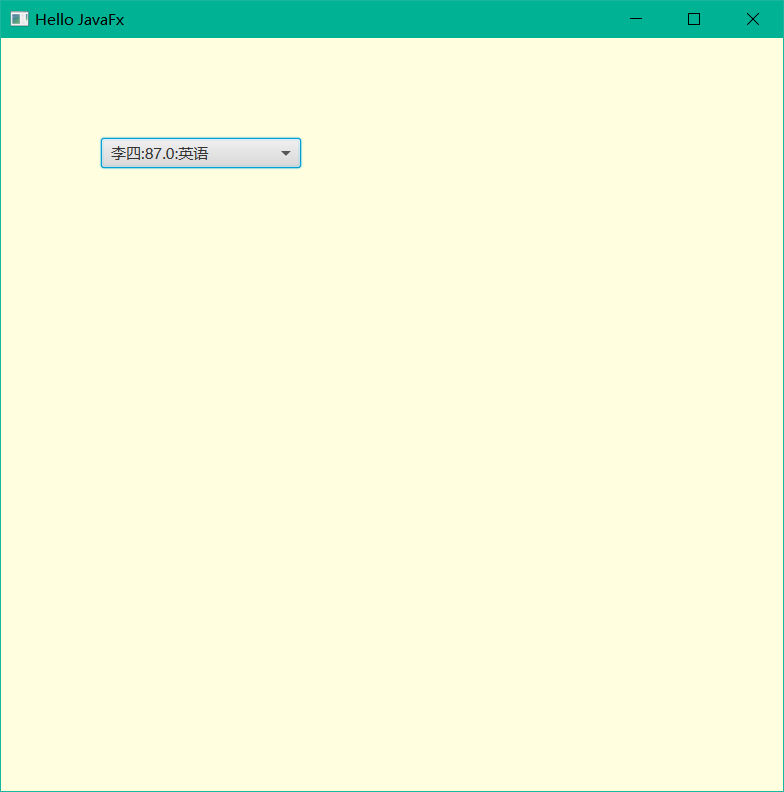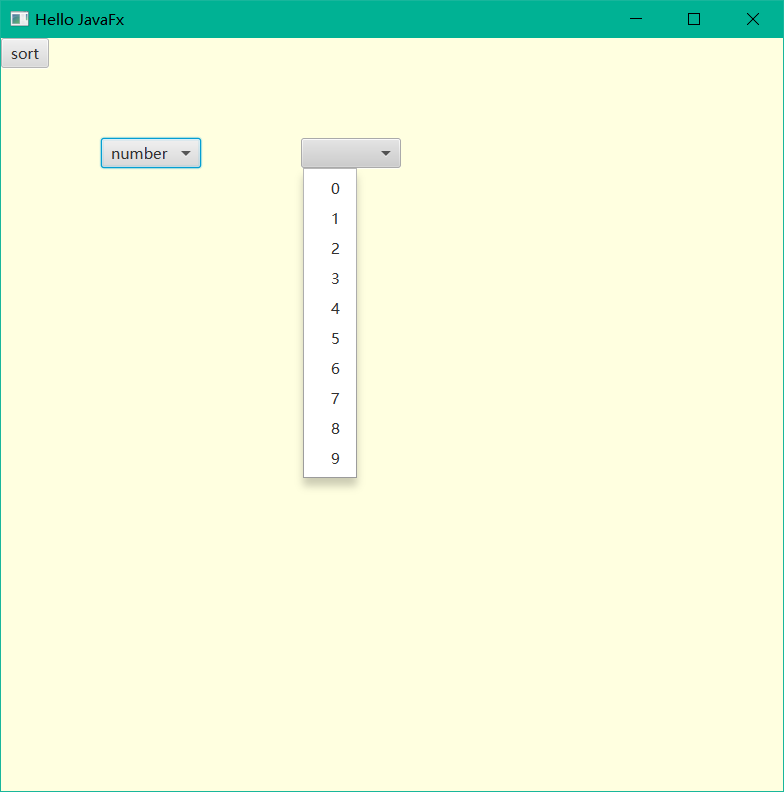ChoiceBox下拉列表
创建下拉列表
ChoiceBox<Student> choiceBox = new ChoiceBox<>(); Student student1 = new Student("张三", 90, "数学"); Student student2 = new Student("李四", 87, "英语"); Student student3 = new Student("王五", 93, "美术"); choiceBox.getItems().addAll(student1, student2, student3);// 添加选项设置显示的内容
choiceBox.setConverter(new StringConverter<Student>() { @Override public String toString(Student object) { String value = object.getName() + ":" + object.getScore() + ":" + object.getSubject(); return value; } @Override public Student fromString(String string) { System.out.println("fromString:" + string); return null; } });设置默认选中
item1项choiceBox.setValue("item1");默认选中最后一个
choiceBox.getSelectionModel().selectLast();选中上一个
choiceBox.getSelectionModel().selectPrevious();选择改变监听事件
choiceBox.getSelectionModel().selectedItemProperty().addListener((observable, oldValue, newValue) -> { System.out.println("newValue.getName() = " + newValue.getName()); System.out.println("newValue.getSubject() = " + newValue.getSubject()); System.out.println("newValue.getScore() = " + newValue.getScore()); });
案例
设置两个ChoiceBox下拉列表,第二个下拉列表的数据根据第一个下拉列表选中项而改变,并且设置一个按钮继续降序排列
创建三个可观察列表
ObservableList<String> list = FXCollections.observableArrayList("number", "character"); ObservableList<Character> list1 = FXCollections.observableArrayList('0', '1', '2', '3', '4', '5', '6', '7', '8', '9'); ObservableList<Character> list2 = FXCollections.observableArrayList('a', 'b', 'c', 'd', 'e', 'f', 'g', 'h', 'i', 'j', 'k', 'l', 'm', 'n', 'o', 'p', 'q', 'r', 's', 't', 'u', 'v', 'w', 'x', 'y', 'z');创建两个下拉列表,并设置宽度
ChoiceBox<String> choiceBox1 = new ChoiceBox<>(); choiceBox1.setPrefWidth(100); ChoiceBox<Character> choiceBox2 = new ChoiceBox<>(); choiceBox2.setPrefWidth(100);为第一个下拉列表绑定数据
choiceBox1.setItems(list);通过监听第一个下拉列表选中项给第二个下拉列表绑定数据,并设置自动展示
choiceBox1.getSelectionModel().selectedItemProperty().addListener((observable, oldValue, newValue) -> { if (newValue.equals("number")) { choiceBox2.setItems(list1); } else if (newValue.equals("character")){ choiceBox2.setItems(list2); } choiceBox2.show(); });创建一个用于降序排序的按钮
Button button = new Button("sort");为按钮添加点击事件
button.setOnAction(event -> { list1.sort((o1, o2) -> { // 倒序排序 return o2 - o1; }); list2.sort((o1, o2) -> { // 倒序排序 return o2 - o1; }); });设置控件在布局中的位置和放置控件(创建布局、场景、舞台展示代码省略)
AnchorPane.setTopAnchor(choiceBox1, 100.0);// 设置位置 AnchorPane.setLeftAnchor(choiceBox1, 100.0);// 设置位置 AnchorPane.setTopAnchor(choiceBox2, 100.0);// 设置位置 AnchorPane.setLeftAnchor(choiceBox2, 300.0);// 设置位置 anchorPane.getChildren().addAll(choiceBox1, choiceBox2,button);